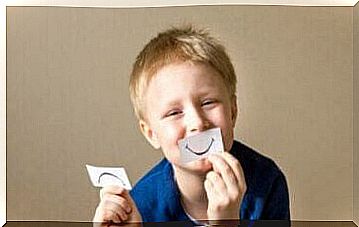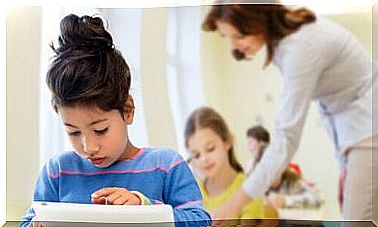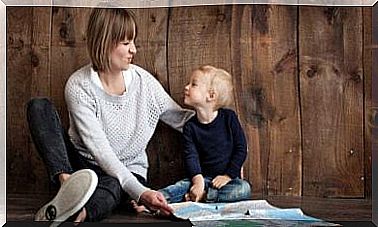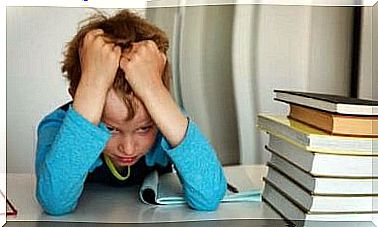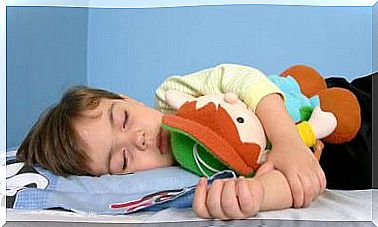My Child Is Very Agitated: What Should I Do? – Being Parents

Some people often say that when you see a calm child, you need to worry. Activity in children is not only natural, but also healthy.
However, there is a tendency today to put a disorder or illness label on children as soon as they move a little more than normal. Therefore, many parents wonder: “My child is very agitated, should I be worried?”
Not all agitated children are hyperactive
If you’ve wondered if your child is too restless, it’s first important to differentiate between an overactive child and a child who is just active, restless, and even restless.
Fortunately, today we have a lot of very detailed and accurate information about Attention Deficit Hyperactivity Disorder (ADHD).
However, with the increase in the number of diagnoses in recent years, the World Health Organization has released a number of information.
Indeed, the latter decided to highlight certain behaviors on which we can begin to analyze whether a child could suffer from this disorder or not:
- Difficulty paying attention to tasks that are not immediately rewarded or that do not provide a high level of stimulation.
- Little attention to detail and maintaining sustained mental effort.
- They are easily distracted and don’t pay attention when spoken to directly.
- They are upside down and often lose things.
- Planning is difficult.
- They have too much motor activity and find it difficult to stay still.
- They are impulsive, they don’t think about the consequences of their actions or opinions.
- Children have difficulty taking turns in conversations, games, or other activities.

My child is very restless and I don’t know what to do
Children have a lot of energy and that’s good. Sometimes it happens that we don’t know how to channel it properly. All they need is to have the means to express themselves, to understand and to have limits set for them.
However, it is true that some children who have excess energy without it becoming hyperactivity. In these cases, certain considerations must be taken into account.
Lots of communication
If your child is very agitated, he or she needs to know more than any other child what is going to happen. All children in general are somewhat anxious not to know what is going to happen. This is why routines are so beneficial to them.
An active child demands that you communicate their daily life to them. Be very strict with his habits and lovingly repeat all the steps to follow.
Very clear limits
When a child has no clear boundaries, he feels lost, with no safety net. It causes him a lot of stress and a feeling of insecurity. The rules must be firm but comprehensive. You cannot constantly change them or hesitate to ask them to comply.
You are his greatest support
They need to have you close to you so that they can trust you and walk towards their independence knowing that they are not going to lose your love.
It’s normal that sometimes you don’t want to stay with them while they are falling asleep, or that you don’t find the time to give them a hug to calm them down before you lose your temper, but it is. really necessary.
A tailor-made environment
Children like to feel useful, this energy helps to collaborate in household chores according to their age. Adapt the kitchen with a small stepladder to help you beat the eggs or make their snack.
In addition, keep his toys and books close at hand so that he can develop his independence.
Anticipation
No one knows your child better than you do, so be aware of the warning signs. If you know that sugar turns him on too much, avoid giving him treats.
On the other hand, if you know that after a party he is very nervous, pick him up a little earlier than expected. Then, when you get home, give him a warm bath and massage to calm him down.
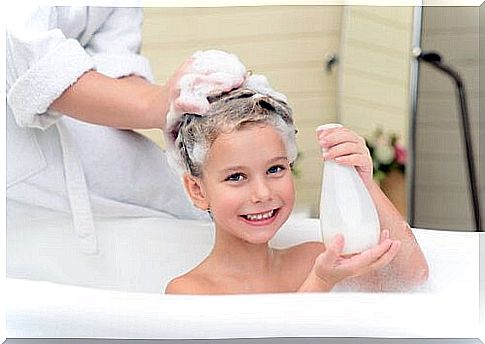
The activities he needs
Your child should be able to exterminate the overflow of emotions he has inside. Therefore, take him to the park, let him run, climb, jump and enjoy the outdoors every day. In this sense, a sport can really help a lot to better channel this energy.
Beyond that, restless children may very well sit for a few minutes to do activities that require their attention and develop fine motor skills. Examples like puzzles, plasticine, toys, construction games, finger painting, etc.
Finally, we advise you to practice certain relaxation techniques with your children. Children are generally happy to participate if you explain what it is to them. When they start to notice how good they feel, they ask for it for themselves.




